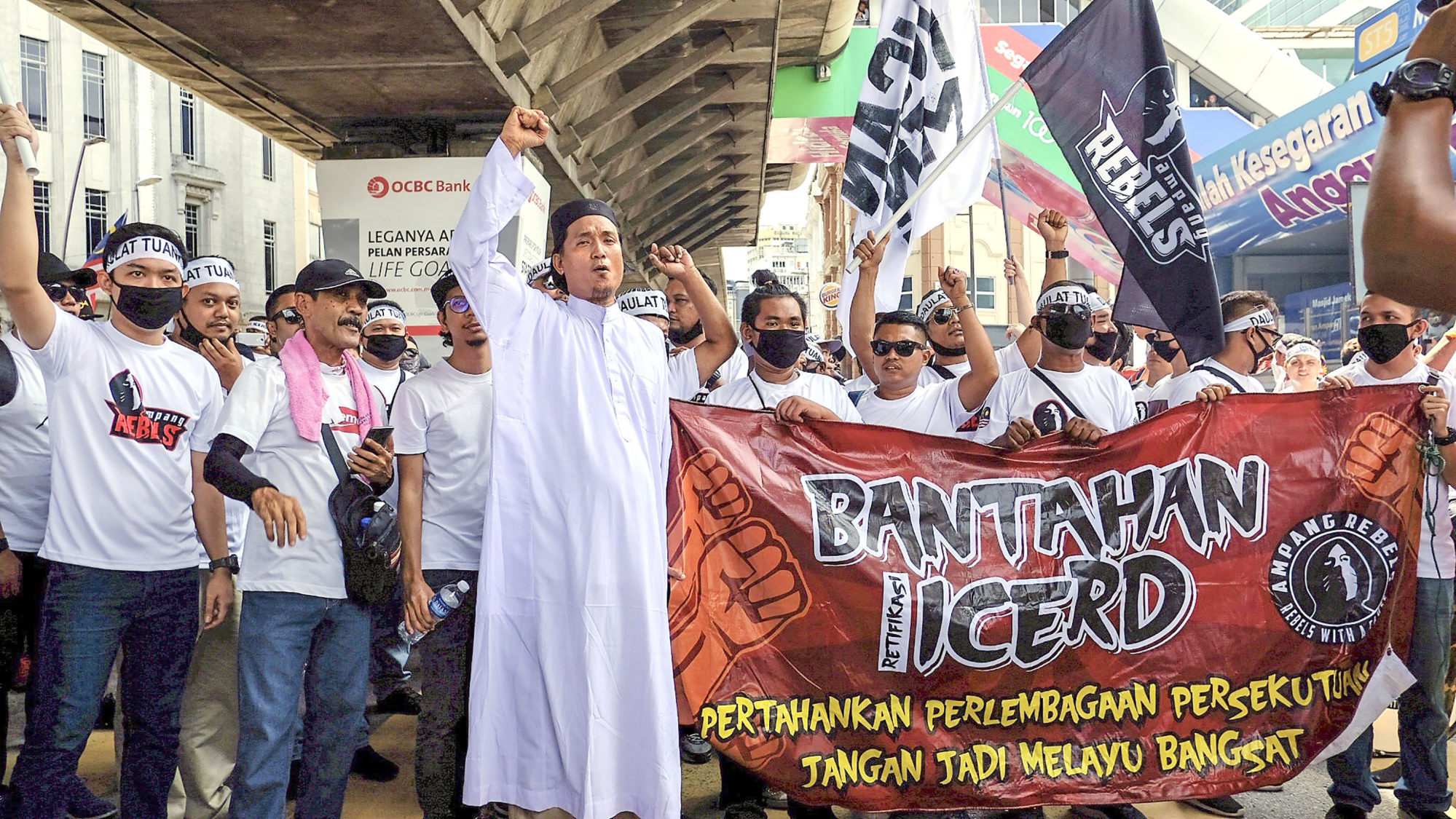Malaysia’s Unesco plan for Chinese villages triggers fury among Malay-Muslim groups
[ad_1]
The central government has said it will work with Selangor state authorities to begin the process of nominating several Chinese “new villages” for the Unesco accolade to preserve their “unique” heritage and promote Malaysian Chinese history and culture through tourism.
The “new villages” were a post-World War II British construct aimed at containing a communist insurgency.
As Malaysia halves Najib’s sentence, watchdog warns of mass street protests
As Malaysia halves Najib’s sentence, watchdog warns of mass street protests
But the move to earn Unesco recognition triggered swift resistance, with some Muslim academics and Islamist parties describing it as an attempt to grant native status to non-Malays, which must be opposed.
Local Government Minister Nga Kor Ming defended the Unesco plan, saying in a statement on Thursday that it was not a “zero-sum game” to elevate the status of one race over the other.
“I welcome suggestions from various parties to nominate Malay villages or any potential historical location as a Unesco heritage site,” Nga said.
Others disagree, saying Malays will lose out as the history of the peninsula is reshaped.
Malaysian boycotters hail win as FamilyMart says it does ‘not deal with Israel’
Malaysian boycotters hail win as FamilyMart says it does ‘not deal with Israel’
“In the long term, this means it will change history. This means flipping the narrative of Malaysia,” said Ahmad Murad Merican, a professor of Islamic thought and civilisation at the International Islamic University of Malaysia in a Wednesday interview with online broadcaster TV Pertiwi.
Ahmad Murad argued that the proposal would pave the way for equal recognition of non-Malay rights over land ownership and their separate education system, which he said is a direct challenge to the Malay identity and privilege as the original landowners.
Malay nationalist party Perikatan Nasional, which is in opposition, also questioned the rush for Unesco status for the Chinese villages when such a plan has not been extended to the Malay enclave of Kampung Baru in the heart of Kuala Lumpur.
Kampung Baru is a long-running sore issue among Malays who have questioned successive governments over the lack of recognition for the city’s last surviving bastion of Malay culture next to the capital’s central business district, coveted by property firms.

“The Malays and Bumiputra as the majority and original inhabitants have been accommodating in accepting outsiders,” PAS central committee member Ahmad Amzad Hashim was quoted as saying by party mouthpiece HarakahDaily.
“But in the end, we have progressively been pushed [around], this is not unity.”
An online petition against the proposal gained over 14,000 signatures as of Thursday afternoon, a day after it was launched.
The petition, filed by pro-Malay group Suara Anak Watan, described the government’s plan as “ethnocide” and urged Malaysians to help hit the target of 1 million signatures as a show of solidarity in defending the country’s “original identity”.
The opposition has routinely targeted the influential DAP to denigrate Anwar’s efforts to build more support among Malays, claiming that his unity government was under the thumb of the DAP, which is the largest party in government with 40 seats in parliament.
The party has not commented on the Unesco issue.
Now Malaysia has a new king, will politics finally take a back seat?
Now Malaysia has a new king, will politics finally take a back seat?
Selangor Chief Minister Amirudin Shari, from Anwar’s People’s Justice Party (PKR), spoke on Wednesday about the opposition against the proposed Unesco nomination, saying it was “not healthy” to stir controversy for quick political gains.
Chinese new villages were created in the peninsula by the British after World War II to round up ethnic Chinese who were scattered in the countryside to contain a communist insurgency led by the Communist Party of Malaya (PKM).
Accounts describe the new villages as internment camps that strictly monitored the movement and activities of the ethnic Chinese to minimise their exposure to the PKM – once a key ally of the British during the Japanese occupation of Malaya.
The British launched a bloody campaign to stamp out the communists, declaring martial law in 1948. The emergency declaration extended into the Second Malayan Emergency that ran from 1968 to 1989, when a peace deal was brokered allowing PKM leaders safe passage to live in exile, some of whom chose to reside in Thailand.
Chin Peng, who headed the PKM over the entire period, died of cancer in a Bangkok hospital in 2013 at the age of 88.
[ad_2]
Source link


 Bonuses for new players
Bonuses for new players